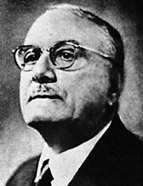

In 1415, “(with the intent of taking control of the trade that came through North Africa in caravans to Morocco, and to provide an outlet, merely by chance, for the scum of worthless rabble who had bubbled up out of the revolution), the bourgeoisie induced the King to take the city of Ceuta […].” Sérgio then continues with a report of the advance of the discoveries along the African coast in which a prominent role is played by economic factors and especially by the arrival of “much gold and many slaves, who began to replace the white men in occupations throughout the southern half of the country, seriously prejudicing the stability of the common people.” And then later, this would open up the expansion to the East.
He always takes the same critical view: “We had no industrial activity that could be developed by this trade with the East.” And his conclusion was firmly stated: “We spread ourselves in this way all over Asia, as far as the Moluccas, in a prodigious and anarchic manifestation of energy.” On the other hand, the colonising effort based on sugar cane agriculture and sugar production in Brazil merited a positive mention. Moreover, this is a Brazil that after the 18th century has the gold that, although contradictory, will become its “great fortune” and so “made reformation unnecessary”. But still, he claims, people persist with the same faults, with parasitism dominating. He then turns to highlight the attempts by Pombal, “an extremely energetic, but extremely tyrannical, man who proposed to carry out, albeit with some distortions, the reformist thought of the Portuguese elite of his time.”
To bring closure then comes the third era, “Attempts at internal remodelling”, which should by rights have followed the independence of Brazil. However, Mouzinho da Silveira’s reforms which sought to do this remained unfinished, and on them fell the external loans policy of the Fontism period (of Fontes Pereira de Melo) which blocked the necessary internal changes. The Republic too did not attack nor “did it resolve in any meaningful way the basic problem of the nation: to create work and jobs in the metropole for its citizens by changing the agrarian regime, by taking advantage of hydraulic forces, by modernising work methods, by importing scientific work, and by establishing a new pedagogy, essentially active and productive.”
